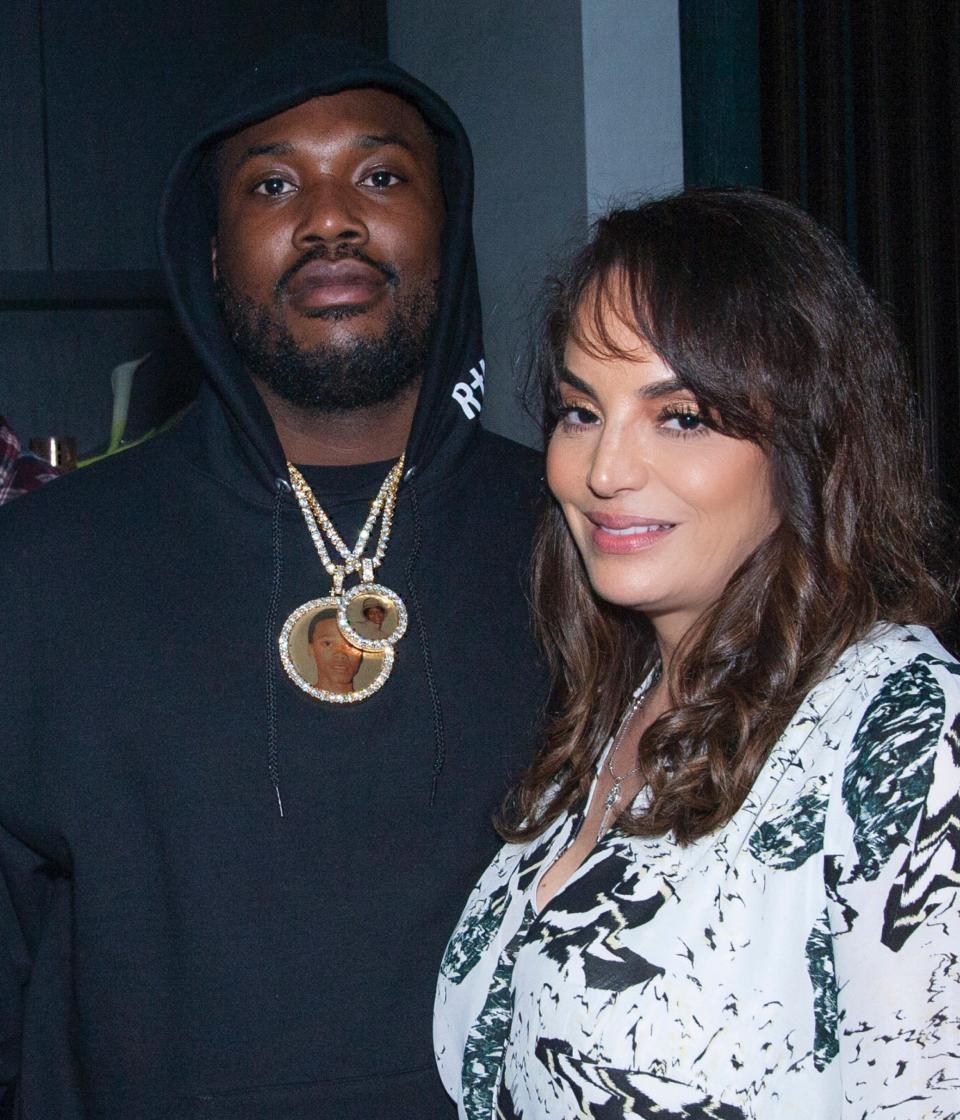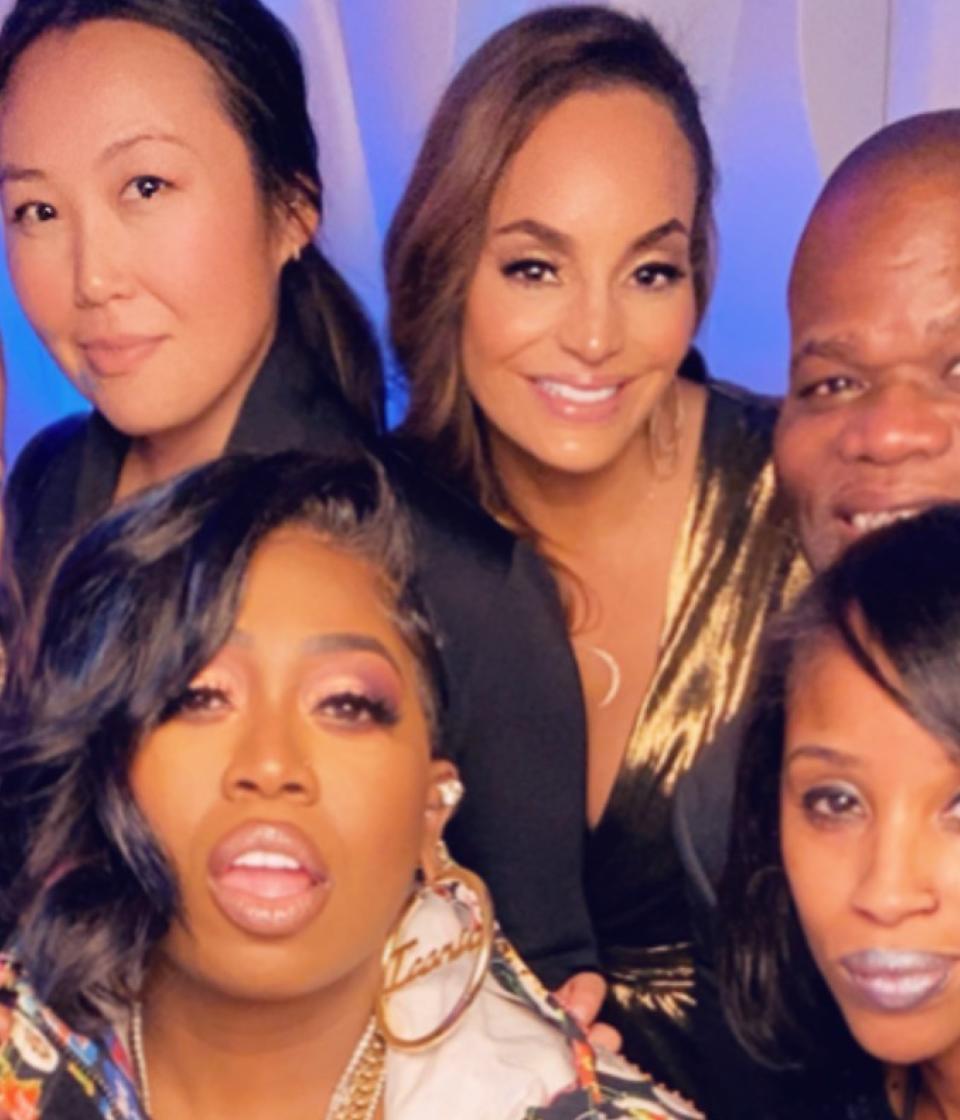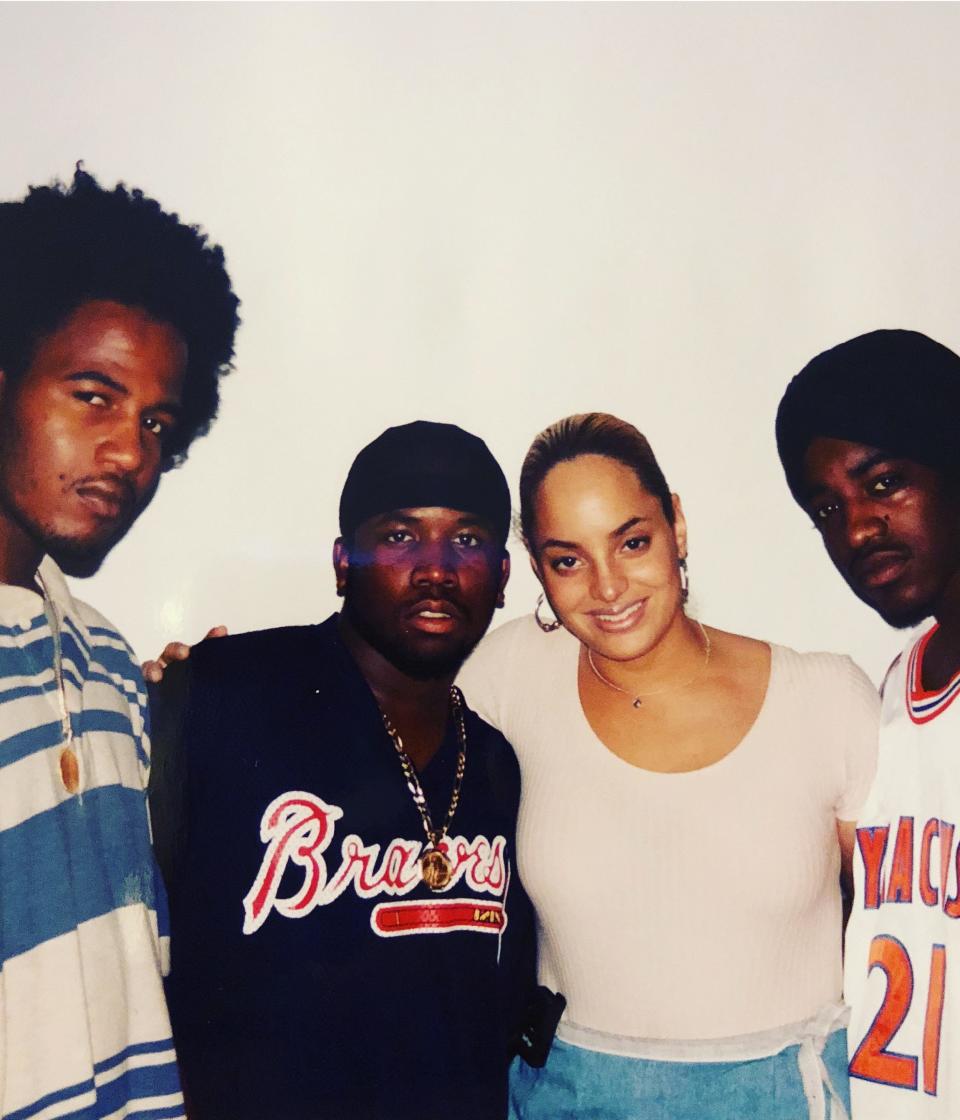Music Exec Juliette Jones on Amplifying Other Women—And Getting Your Money
Juliette Jones has seen it all. As one of the highest-ranking female executives in the music industry, she’s better positioned than most to talk about what it’s like to be a woman in the working world. If there’s a problem, she’s seen it, tackled it, overcome it, and come out the other side better for it.
Jones started her career fighting to gain a foothold in the music industry—from front-office positions to street-team gigs and even a pit stop in magazine publishing. Now an executive vice president at Atlantic Records with an impressive track record under her belt, Jones has had a hand in the success of a disproportionate number of musical icons—from Whitney Houston and Janet Jackson to Cardi B and Lizzo. And while her name might not be recognizable to the casual music consumer, Jones’s reach is long. If at some point in the past several decades you’ve streamed pop music, odds are you’ve benefited from her unique skills.
Given the pressures of her work, it’s hard to find a moment for Jones to rest—let alone let her guard down. But in an interview with Glamour conducted via Zoom, Jones was surprisingly candid about how she managed to achieve her success, and she talked all about why she recognizes the need to operate in the world as it is, instead of as it should be.
Setbacks can be opportunities in disguise.
I was devastated [when I was fired from Jive Records], and I would like to say that I had a brilliant plan, but I did not. When I was in between jobs, I was in Los Angeles and my friend who worked at a magazine asked if I would meet with her company. I never had dreams of becoming a magazine editor, or really thought much about it. Lionel Ridenour, who was a good friend of mine and kind of a mentor to me, said, "The key is for you to stay in, so you have to be open to the things that you're willing to try to do. If that's your opportunity, you should try it out." And it ended up being a really great move and a good experience. I learned a lot and built some more relationships in that way, and the truth for all people, and women in particular, in this case, is just to be open to what's available to you.
That job gave me the opportunity to work with all the labels. Promotion is a sales job, so I was used to having the primary function of my job [be] calling people, and taking people out to dinner, and just sharing information. So, to be responsible for putting an article together every week, I learned a new level of discipline about how I approach my work. I couldn't sort of do it last-minute on the bad days when sometimes you just don't feel like working. That wasn't possible in that context. I had a deadline, and working on the magazine was very collaborative.

Juliette Jones and Kendrick Lamar
Mentorship arrangements don’t have to be formal, but they should be useful.
I have a couple of mentors, nothing official. Today young people always want a title. They want you to say that "I'm your mentor, you're my mentee." But I started in the music business, and was introduced to it by a woman named Arlinda Garrett, who taught me a lot. I started out as her intern, and during that time I met Lionel Ridenour at a convention, and he went on to get a big job in New York at Arista, and I moved to New York to take an internship. By proximity I was able to really expand that relationship, and he was very successful. In his run at Arista, he was very helpful, and always has given me very sage advice. Larry Kahn was my first boss and gave me my first job. He was a great promo man. His father was a promo man, and I learned a lot from him as well.
The thing that was missing for me sometimes as I moved up the ladder was women who could give me insight into what it was like to do this job as a woman.
[Mentors are] very important, and because of the job I do, the nature of [the industry] is that predominantly men do it. The thing that was missing for me sometimes as I moved up the ladder was women who could give me insight into what it was like to do this job as a woman, and the unique perspective of that. Practical knowledge and wisdom and candor about what the job really is, as opposed to theoretical speak, is so valuable to all of us so that we're prepared. If you have the luxury of having a mentor that you really trust, and especially if you have a woman, the opportunity to have that support system, it's a brand-new experience to have someone that has been there before to give you some insight on that process, and it is just invaluable for peace of mind and confidence.
Always try to amplify other women in the workplace.
First and foremost, women in positions to hire, [who have been] given opportunity, have to look to paying that forward with other women. It's important that we all speak up on behalf of each other, and advocate for women to get opportunities at every level. It's not just not getting the opportunity to get in the door. They're not getting the opportunities to keep moving through the ranks of the company, and that is about mentoring and advocacy on all of our behalf. It's going to take everyone to speak about it and advocate for it, and those of us who are in positions to hire people, to make sure that we're sensitive to giving women opportunities when the opportunity presents itself.

Juliette Jones and Meek Mill
Your work may have to speak for itself.
When I got into the music business, we kind of understood that [sexual harassment] came with the territory, and I think that it made me hypersensitive to being acknowledged for my accomplishments and my intellect and my contribution. I was almost defensive if someone gave me a compliment that had something to do with anything other than [my work]. But I think that I went into it understanding that it was going to require me to maintain a level of excellence and professionalism that might exceed the standard for what the men were required to do.
I dealt with more than one incident of sexual harassment over my career. Early on, when I was trying to get my first job and I was just coming from being an intern, some of the men who were in positions of power were more forthcoming with me about the truth that they didn't believe in hiring women to do this job. It took me five years of interning to get my first opportunity for a paid job, and I sometimes feel if we get a roundtable of everyone who runs urban promotion in the music business, the women are outnumbered three to one. There's not very many of us still, and I feel that the women are just left out of those conversations for a long time. By design, I felt like women in that part of the business were expected to put up with some stuff that no one should have to put up with, and kind of chalking it up to what's the culture, "Oh, that's how people are." No, everyone is not like that.
Until I had the level of success that I've had at Atlantic, sometimes I was never included. Now with my experience and tenure and contribution, they feel like it's necessary, but that was not always the case. One of the things that drew me to promotion is the nature of the job. When you do marketing and you're creating marketing campaigns, some of that is subjective. If people like or don't like the images or the merch, the photo shoot, the video shoot, the overall plan is very much subjective. Sometimes the proof is in the success of it. It doesn't matter if I'm me or someone else, if the record is number one and everyone knows, that's a success.

Juliette Jones with Missy Elliott and her team
Always get your money.
Most of us are working because we want to make a living. No one is doing this as a charitable endeavor, unless that is what you're doing. But if you're in the music business, that's probably not the purpose. While I do agree that doing a job that you love is ideal, it's still your job, and you still do it to make a living. When it comes to paying for things, we value things that we paid more for. We connect the value with the price, and it's totally okay for women to receive that their skill set is expensive.
When he gets to this level, he should demand his money as well.
You are here to make money. You do care what they pay you. It's reasonable to care about what you get paid. It has a direct correlation to your quality of life. I'm in New York City—ridiculously expensive. You must know what you're getting paid because you have to survive on that. I think the worst someone can say is no, and I really want women to understand that. There's nothing wrong with expecting and asking for a fair and equitable compensation, and sometimes even more than what other people are making, because maybe you're better. Maybe you deserve more than what they're making, and we're not even comfortable saying that: I should make more because I'm better than him. The proof is in your accomplishments. Clearly on paper, I am better, which means I should make more money. When he gets to this level, he should demand his money as well.
Why do you want to set up your job so you're stressed and you can't pay your bills and you're miserable and you're distracted, which is eventually going to impact your performance? When you're happy and free to handle your life and focus on your work, the odds are you're going to do a much better job, so just be honest about what that requires.

Jones with OutKast
Courtesy of J. JonesImpostor syndrome is real, but it can be overcome.
I have my moments with each new challenge and each new promotion. I kind of push, push, push, and I have all my speeches, and why should we get the money and everything else, and then I get the job, and I'm, "Oh my God, I hope this isn't a failure. I'm going to do a great job at this." But I have learned as I've matured that a lot of that I receive as a blessing, because I just still really care about the job that I do. I'm passionate about what I do, and I want to be great at it, and each time there's some new responsibilities, and possibly some new territory that will fall under my purview, that I have to sort of learn, and I haven't been doing consistently for years, and I'm not quite as proficient, I'm a little afraid. I'm also a person who has tremendous respect for working for people who I know are smart and work hard and are passionate about what they do, and so, as a person who's a leader of people, I very much want to be the kind of example that I admire.
This interview has been edited and condensed.
Cate Young is a film and culture critic based in Los Angeles. Her writing has appeared in NPR Music, Jezebel, Nylon, Bitch Media, Rotten Tomatoes, Zora, Cosmopolitan, Vulture, and Paper magazine.
Originally Appeared on Glamour

